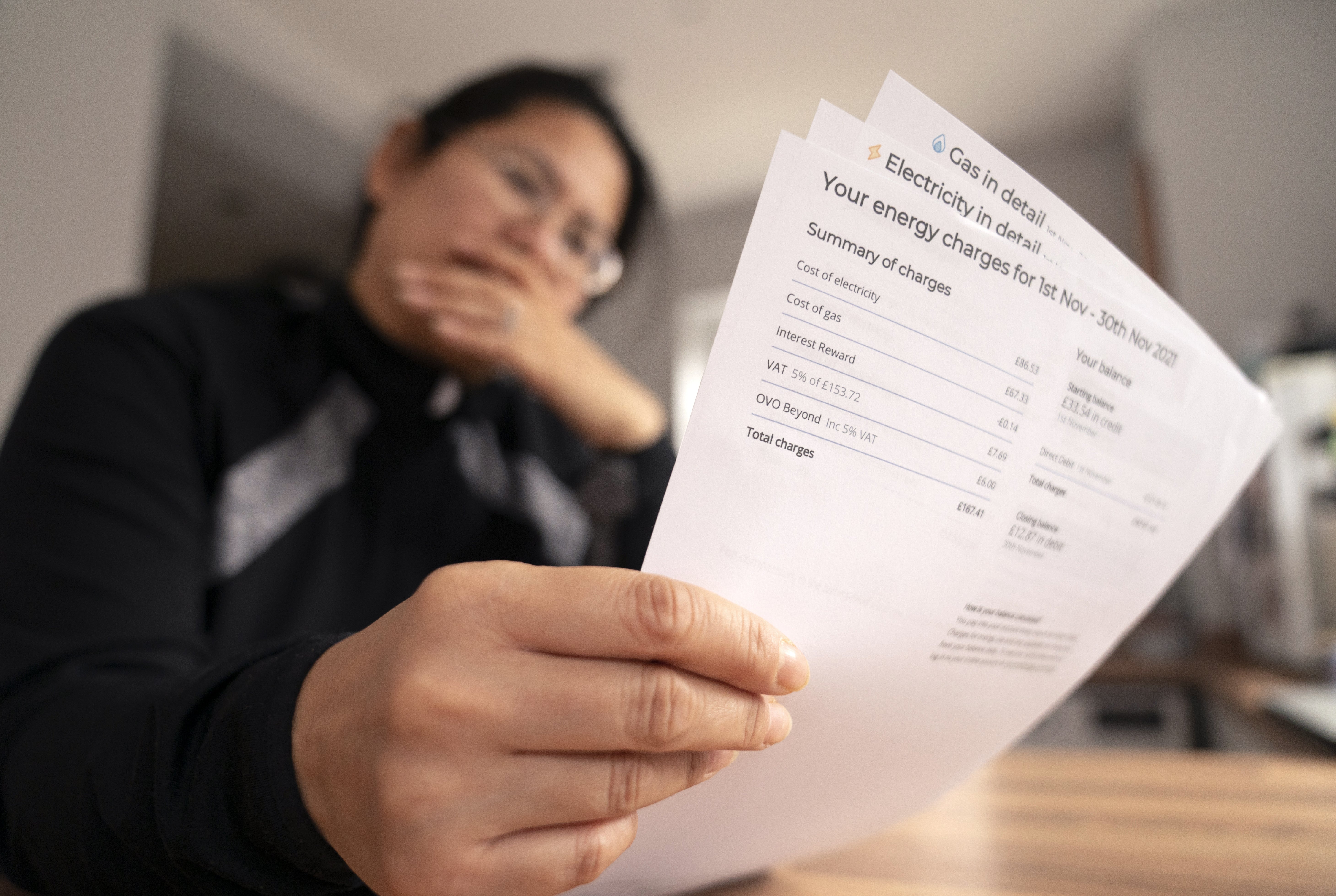Small businesses owed £23,000 in late payments amid soaring energy bills
The Federation of Small Businesses said many small firms could be forced to shut down if they cannot pay their bills.

Your support helps us to tell the story
From reproductive rights to climate change to Big Tech, The Independent is on the ground when the story is developing. Whether it's investigating the financials of Elon Musk's pro-Trump PAC or producing our latest documentary, 'The A Word', which shines a light on the American women fighting for reproductive rights, we know how important it is to parse out the facts from the messaging.
At such a critical moment in US history, we need reporters on the ground. Your donation allows us to keep sending journalists to speak to both sides of the story.
The Independent is trusted by Americans across the entire political spectrum. And unlike many other quality news outlets, we choose not to lock Americans out of our reporting and analysis with paywalls. We believe quality journalism should be available to everyone, paid for by those who can afford it.
Your support makes all the difference.Small businesses were owed almost £23,000 in late payments for a month, according to new data, adding to the sky-rocketing energy bills that are piling pressure on concerned business owners.
Late payments totalled £22,700 for the average small business, with at least one overdue invoice in May, representing a 6% year-on-year rise.
This amounts to 65% of their average monthly turnover, new data from accounting software Intuit QuickBooks showed.
Companies are expected to pay most invoices within 30 days to their small suppliers, according to the Prompt Payment Code set by a government body representing small businesses.
Many of our members say the eye-watering energy bills could be the final nail in the coffin as they struggle to get through winter
However, many big firms fall short of these standards and independent businesses are left with overdue invoices or are not being paid the full amount they are owed.
This is leaving them with significantly less money at a time when the cost-of-living crisis is worsening and companies are being hit with much higher bills, the researchers warned.
Furthermore, almost two-thirds of invoices owed to small business were overdue in May, QuickBooks’ data revealed.
It comes as a growing number of small businesses called on the Government to provide urgent support to prevent them buckling under the energy crisis.
The Federation of Small Businesses (FSB) said on Friday that many small firms could be forced to shut down if they cannot pay their bills.
Energy regulator Ofgem has set the household price cap to £3,549 to come into effect in October. However, there is no such ceiling for most businesses, which could see their energy costs go through the roof.
We are determined to see late payments reduced to ensure that small businesses are given the best chance of succeeding and growing, which is why we recently reformed our Prompt Payment Code to ensure best practice in payment culture
Martin McTague, national chair of the FSB, said: “Unlike large corporates, small firms cannot hedge costs and negotiate deals with their large energy suppliers.
“Many of our members say the eye-watering energy bills could be the final nail in the coffin as they struggle to get through winter.
“We don’t have the luxury to wait until the winter and inaction from our new prime minister could spell the end for many businesses.”
A quarter of small to medium enterprises said higher energy bills will be unsustainable within 12 months, YouGov said in a recent survey.
Despite the mounting pressures, more than two-thirds of small businesses said they are confident in their financial stability, QuickBooks added.
A Government spokesperson said: “We are determined to see late payments reduced to ensure that small businesses are given the best chance of succeeding and growing, which is why we recently reformed our Prompt Payment Code to ensure best practice in payment culture.
“No government can control the global factors pushing up the price of energy, but we will continue to support business throughout the UK in navigating the months ahead.
“We have already taken a number of steps to support firms, including slashing fuel duty, freezing alcohol duty rates on beer, cider, wine and spirits, and reducing employer national insurance by raising the Employment Allowance.”